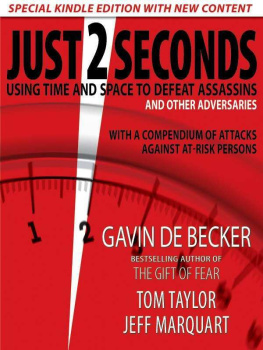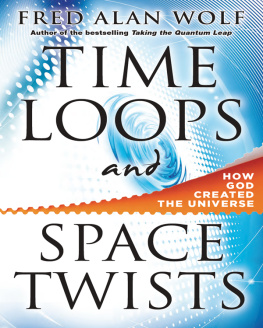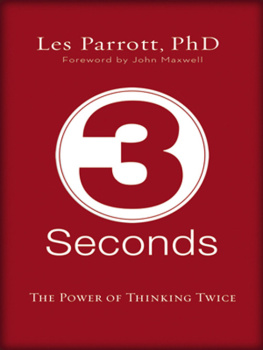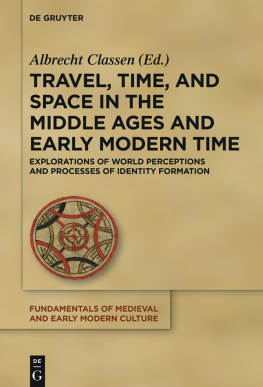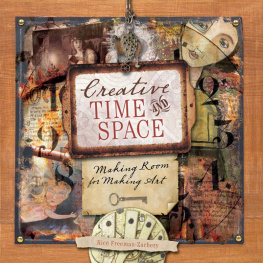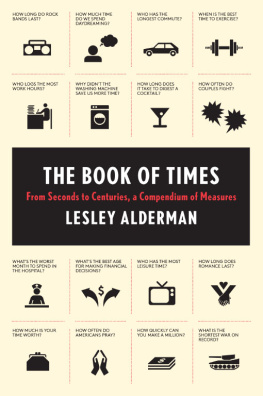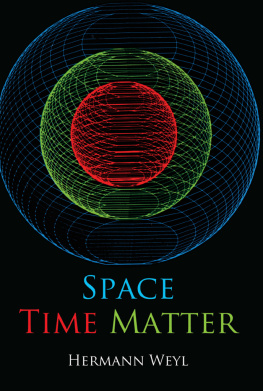Also by the Authors
Gavin de Becker
The Gift of Fear
Protecting the Gift
Fear Less
Tom Taylor
Dodging Bullets
Mortal Shield
JUST 2 SECONDS
USING TIME AND SPACE TO DEFEAT ASSASSINS
AND OTHER ADVERSARIES
With a Compendium of Attacks
Against At-risk Persons
Gavin de Becker
Tom Taylor and Jeff Marquart
Copyright (c) 2008 Gavin de Becker, Tom Taylor, and Jeff Marquart
All rights reserved. No part of this book may be reproduced in any form or by any electronic or mechanical means, including information storage and retrieval systems, without permission in writing from the publisher, except by reviewer who may quote brief passages in a review.
The Gavin de Becker Center for the Study and Reduction of Violence
a not-for-profit foundation
11684 Ventura Blvd, Suite 440
Studio City, CA 91604
The publisher has made every practical attempt to contact and credit holders of copyrighted material used in this book. Any oversights should be brought to the attention of the authors, and will be corrected in subsequent editions.
First Edition
ISBN 978-0-615-21447-4
Book design and all illustrations by Geoff Towle, Incubox Creative
PRINTED IN THE UNITED STATES OF AMERICA
For traditional copies or institutional bulk orders:
www.just2seconds.org
Any revisions or updates to this book are posted at:
www.just2seconds.org
To contact Gavin de Becker & Associates:
www.gavindebecker.com
For each protector at Gavin de Becker &
Associates, with respect and appreciation for your
commitment to excellence. And for those who
have invested their confidence in our work:
We commit to re-earn it every day.
Contents
Appendices
The Compendium Contents
Think of every assassination you've ever heard about.
For most people, a few of these major ones come to mind: Caesar, Abraham Lincoln, John Kennedy, Martin Luther King, Mahatma Gandhi, Indira Gandhi, Anwar Sadat, John Lennon, Israel's Prime Minister Rabin, Pakistan's Benazir Bhutto. From start to finish, all of these attacks -- combined -- took place in less than one minute. And the hundreds of attacks studied for this book, all of them combined, took place in less than a half-hour. Those thirty minutes, surely the most influential in world history, offer important insights that can help today's protectors defeat tomorrow's attackers.
"Sever the edge between before and after."
Takuan Soho, Zen Master, author of The Unfettered Mind, 1600
This is not the time for thinking. This is not the time for planning. This is the time for action. It is 2:25 PM on March 30, 1981, and the system of Presidential appearances is chugging along just fine, at least by all appearances. A group of people behind a slender cordon is waiting to see President Reagan walk to his car. Some are waiting to get a closer look at him, some are waiting to photograph him, others are waiting to call out questions, and one is waiting to kill him.
The media reporters and technicians are part of the system of Presidential appearances. Political promoters like them to be close, protectors like them to be far away, and presidents don't like them at all. Nonetheless, they are part of the system, and this afternoon, they are helping to conceal John Hinckley, who is not part of the system. Not yet anyway.
In a second or two, Hinckley's actions will cause the system's gears to grind as they try to digest something new: bullets. The assailant has six bullets in his handgun, and he's about to fire them all. When this happens, some people will flinch and duck, some will fall, others will stand tall. John Hinckley will become part of the system, his quality-control test improving it in the long run, but having terrible consequences in the short run.
The President walks out of the hotel. Though Hinckley glimpses him for just an instant, he draws the gun and begins firing. At the sound of the first gunshot, nobody standing on the sidewalk of the Washington Hilton Hotel recognizes what is happening -- nobody other than Hinckley, that is. For some, it takes another shot and seeing people fall. For others, it will take all six shots to call their minds into this moment.
Since the attack began and ended in less than two seconds, it's easy to understand how some people who were right there had no idea what had happened until afterwards. Just two seconds, and the shooting was over. This book is entirely about those tiny fractions of time. These pages do not explore the planning that precedes attacks, the rationale behind them, the nature of conspiracy, the social and cultural conditions that foment them, or the psychology of attackers -- all important topics that have been addressed in other books. We are concerned here only with events at the scene of the attack, during the attack.
There are many disciplines that break events down to their elements. When judging a guitar, for example, experts listen for four things in particular, described by the term ASDR:
Attack (the first sound that comes from the instrument when a note is played), Sustain (how long the instrument body holds the pure sound of the note), Decay (how long it takes the sound to die), and Release (the end of the sound).
Our scrutiny must be as precise, given the stakes. Were this a book for pilots, it would be about crashes and near-crashes, not about routine flight, aircraft maintenance, nor navigation. Instead, it would explore the lessons that present themselves from the moment an aircraft comes out of stable flight until the moment the incident ends -- such incidents always ending in one of two ways: The pilot regains control, or the aircraft crashes.
The moment protective operations come out of stable flight is usually marked by the sound of gunfire. In most of the hundreds of incidents we studied, that sound is what led protectors to know an attack had commenced.
However, there's an event before the sound of gunfire that actually marks the start of an attack: the Moment of Commitment. That's the instant in which an assailant first takes an obvious action likely to reveal intent, an action from which he cannot easily retreat. It might be his bringing a gun into view, or pushing forward through the crowd, jumping onto the stage, or raising his arm with a knife, but whatever it is, he knows he's not likely going home when his act is over. It is this Moment of Commitment that starts the clock on a critical race between safety and lethality.
Sometime (i.e., some time) after the Moment of Commitment comes the Moment of Recognition. This is the instant when protectors get their minds around what is happening, a prerequisite to getting their arms around what is happening -- and more significantly, getting their arms around the assailant or the protectee. Watch the videos and films of attacks and the Moment of Recognition is unmistakable. You will see a powerful energy bolt through everyone present. The target freezes and recoils, the bodyguards and the attacker begin an awkward and disturbing ballet, onlookers surge forward to see, then backward to survive. A chorus of screams and gasps is heard long after the violence has stopped.
The extensive study undertaken for this book has produced many insights, the most striking of which is also the simplest:
From the Moment of Commitment onward, the overwhelming majority of public figure attacks are over in less than five seconds. Within just those few seconds, all the damage that will be done has been done.
The five-second statistic could be discouraging to protectors, because it grants them very little time to respond effectively. However, embedded within that five-second statistic is one of the most encouraging lessons we learned:

